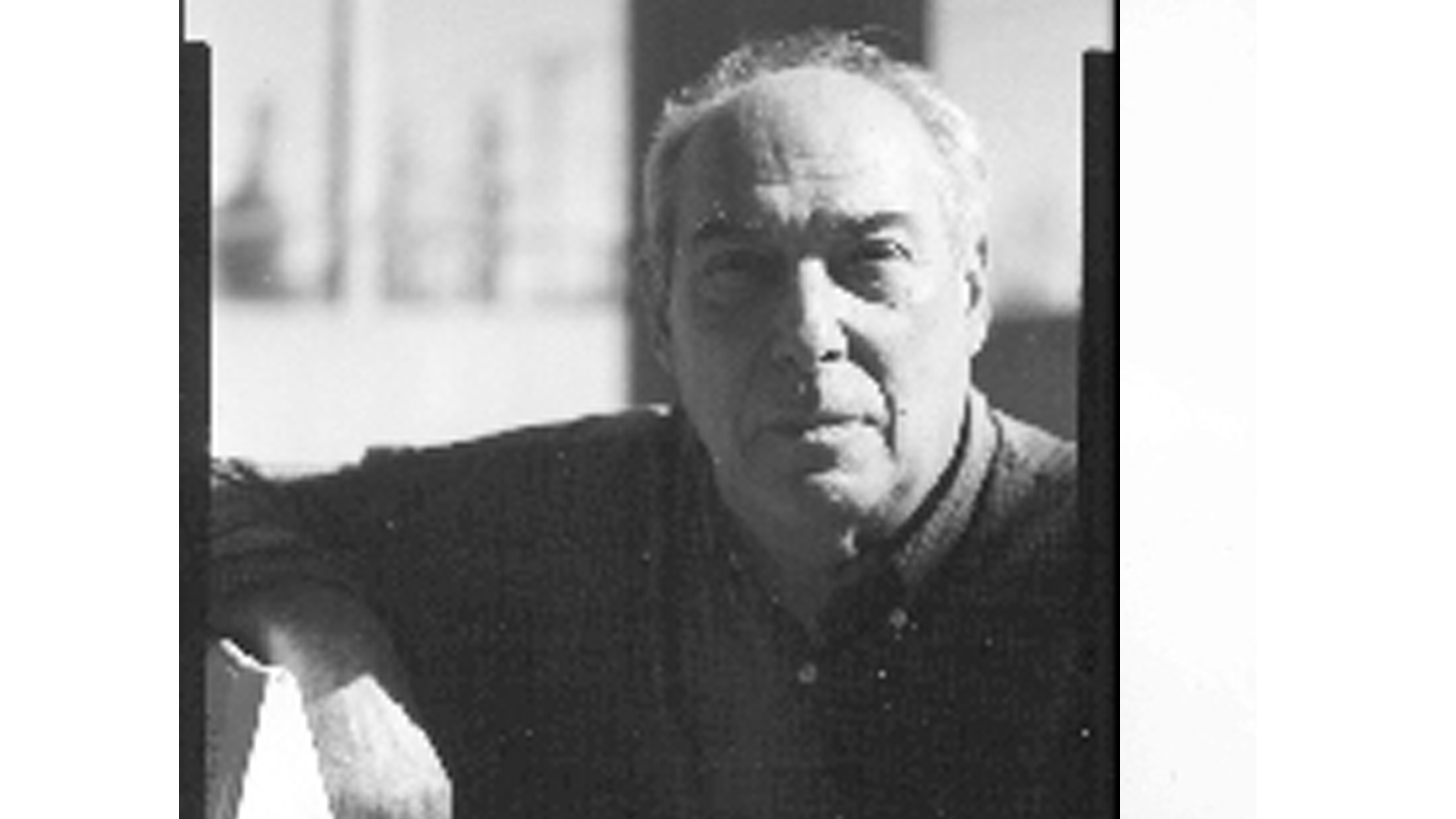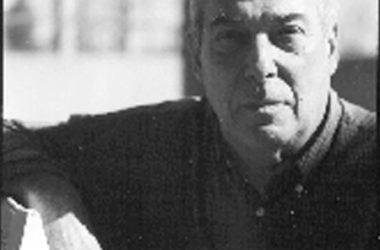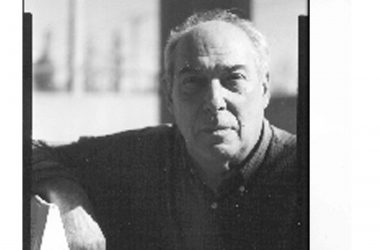By Noel Ignatiev
Herbert Hill died in 2004. He had been a member of the Socialist Workers Party, but left around 1949 to take up a position as labor secretary of the NAACP. During his time with the NAACP he led a number of campaigns against racial discrimination by labor unions, his main targets being the International Ladies Garment Workers Union, the American Federation of Teachers, the United Steelworkers of America and even the ‘til-then untouchable United Automobile Workers. In 1969 he organized the demonstrations at building sites in Chicago demanding jobs for black workers, who had been excluded by the construction unions. The principal slogan was “Open Them Up or Shut Them Down.” Construction workers threw projectiles on the demonstrators below. Mayor Daley shut down construction in the city (thus conceding the demonstrators’ second slogan, “If we don’t work, nobody works”). The eventual result was a consent decree that opened the unions for the first time to black workers. (Epilogue: around 1996 I spoke at Harvard’s labor institute – I forget the name – to an audience of mostly white construction workers. When I made reference to the low number of black workers on the federally-funded Big Dig, they gave as the reason that many of the young black workers couldn’t pass the urine test. Here was an industry in which workers routinely covered for their mates who showed up drunk, but were willing to subject themselves to the degradation of pissing in a cup so long as they were not the main direct victims of the tests.)
Herb was such a worry to the labor unions that David Dubinsky, President of the ILGWU, offered to pick up the entire deficit of the NAACP, the only condition being that they fire Hill. To his credit, Roy Wilkins, NAACP executive secretary, replied that the NAACP was not for sale. When Wilkins left the NAACP, his successor, Benjamin Hooks, told Herb that he liked him and supported what he was trying to do, but that if it came to a choice between his ass and Herb’s, Herb would have to go. Herb left the NAACP and took a position as professor of sociology at the University of Wisconsin. (Before he took up sociology he had written on Afro-American literature, and was friends with many black writers of the day. During his years with the SWP he had been close to C.L.R. James.)
I knew Herb well, from about 1988 to his death. I was first drawn to him by reading his article, “Myth-Making as Labor History: Herbert Gutman and the United Mine Workers of America,” that caused such a stir among the white-labor apologists who idealized Gutman. (I treat the controversy extensively in the Afterword to How the Irish Became White [Routledge 1995, 2009.]) We discussed his subsequent articles attacking union discrimination, and he sent me signed copies as soon as they were printed. He helped me with my book on the Irish and was encouraging and supportive of Race Traitor, to which he contributed two articles. I still treasure his letters, written on sheets of yellow legal paper. (He didn’t use a computer or even a typewriter.) I stayed at his home once in Madison, and we often got together when he visited Boston. Once I drove him from Boston to Amherst, where he met with people from the Africana Studies Department, who obviously held him in high esteem. He was a wonderful storyteller, with tales of his run-ins with union officials and mafia figures. We discussed my helping him write his autobiography, and he offered to make his papers available to me, but he died before it could happen. I regret not moving faster on that.
In November 2012 Christopher Phelps, whom I had never heard of, published an article in Labor History, based on an examination of newly released government files, which claimed that during his years with the NAACP Hill had been an FBI informant. One of the charges was that he had told the FBI of the links between the Committee to Aid the Monroe Defendants (which grew out of Robert Williams’s work in Monroe, North Carolina) and the Socialist Workers Party, thereby undermining NAACP support for Williams. Among those Phelps quoted to provide political background on Hill was Eric Arnesen, who described Herb’s prose style as “scathing and moralistic.” Knowing Arnesen, I read his comment as more a reflection on Herb’s stance toward unions than a criticism of his prose style.
I wrote to a few friends, including former Race Traitor co-editor John Garvey, saying, “Something stinks. The charges may be valid, but the attack is politically motivated. The tipoff is the quote from Arnesen, who has succeeded [David] Montgomery as the dean of the white-labor apologist historians, who was a foe of mine at H’vard and, more important, hated Herb the way the devil hates holy water. This was a hatchet-job, not neutral scholarship—although, sadly, it may be accurate.”
In another letter I wrote, “The evidence says that the FBI contacted Herb in 1962, but does not say whether Herb ever spoke to NAACP officials about the ties between the CAMD and the SWP or that if he did his intervention had any effect. Phelps admits that any convergence between the NAACP and CAMD was unlikely. However damning the record of Herb’s contacts with the FBI, on this count the verdict must be ‘not proven.’ Moreover, the CP, which ‘fingered’ (Phelps’s term) Hill as a ‘Trotskyite’ and a ‘red-baiter,’ would not touch Williams with a barge pole. Arnesen’s concern was not the revolutionary current Williams represented, but the labor unions. I am reminded of Lenin’s comment about Luxemburg: an eagle may fly lower than a hen, but a hen can never fly higher than an eagle. Still more in sorrow than anger.”
One person wrote back:
“The whole thing reminds me that MAD’s ‘Spy vs Spy’ comics always eluded me growing up. (And reminds me of my friend [IWW historian] Fred Thompson’s extreme doubt that police sources would help working class history much.) Specifically, I’m not getting the ‘named names’ part. The article is very unclearly written and seems designed more as press release than patient exposition. Clearly in the Monroe 1962 case Hill would have had little concrete to give. He left the SWP in ’46, ’47 or ’49 (accounts differ). So fifteen years later the FBI needs him for details on Berta Green, who had joined as Hill was leaving and then became a very prominent secondary leader, the secretary of NY Fair Play for Cuba Committee, for example? I have trouble thinking the NAACP would not have already known of SWP involvement with the Monroe committee. But whatever, on Phelps’ own account, the FBI brings Green’s involvement in the Monroe committee to Hill, then asks him to use it—in pretty fully unclear ways—not the other way around. He does not name her. The other earlier instances of reported informing are matters on which Phelps describes the FBI documents as very vague and not permitting us to know what information Hill gave about names the FBI put before him. The slapdash nature of the article is not inconsistent with a desire to find some stick with which to beat Hill’s critique of the CIO and/or some splashy scoop when the sad mundane details might argue more for this being a rather all-too-typical example of what the state expected and mostly got from operatives in liberal, anti-communist civil rights organizations.”
As the writer notes, NAACP officials routinely cooperated with the FBI, as part of their Cold-War deal. Had Herb slammed the door in the FBI’s face, as revolutionary, or even liberal, principles demand, he could not have continued as NAACP labor secretary, where he did such outstanding work.
I learned that Phelps had first submitted his article to another publication but withdrew it when the editors said that before publishing it they needed to submit it to someone knowledgeable about FBI workings. The reporter added, “We have no idea of what transpired betw/ Hill and the FBI agent and whether Hill had any knowledge that he was dealing w/ the FBI. One board member suggested that an FBI agent might have been burnishing his file when he reported his dealings w/ Hill.”
Not all of those I contacted shared my sympathy for Herb. One asked, “How could he have sunk lower than to have aided the FBI conspiracy against Robert Williams…?”
The NAACP expelled Williams for forming an armed group in North Carolina and advocating self-defense against the Klan, independently of any alleged contact between the FBI and Hill. Departing from NAACP policy, Hill supported Robert Williams. Timothy Tyson, who wrote a book sympathetic to Williams, thanked Herb for his assistance.
In spite of what appears to be incontrovertible evidence against him, Herb retains his place in my personal Hall of Fame (along with Shoeless Joe Jackson).
A follow-up article to Phelps’s, by Trevor Griffey, published on line January 25, 2013, which has just come to my attention, asked, “Was Herbert Hill—the Labor Secretary of the National Association for the Advancement of Colored People (NAACP) for 25 years known for his fierce criticism of labor union racism, and longtime labor and civil rights movement historian at University of Wisconsin—an ‘FBI informer’?” and concluded:
“Yes: University of Nottingham professor Christopher Phelps has convincingly drawn together scattered documents to prove that Hill, who left the Socialist Workers Party (SWP) in 1949, provided information to the Federal Bureau of Investigation (FBI) about his former SWP comrades between 1953 and 1955.
“But: recently released documents from the FBI’s New York City field office on Herbert Hill, which do not appear to have been available to Phelps and which are published online here for the first time, suggest that Hill was not the kind of figure that people in the general public often associate with the term ‘informer’ or ‘informant.’… There is no evidence in documents released so far that Hill infiltrated any organization on behalf of the FBI in order to secretly report on it or to disrupt its activities.”
John Garvey said, “I can think of many reasons why Herb might have done what he did, but not a single reason why he should have.” He urged me to write a one-act play imagining myself interviewing Herb in heaven (or wherever we find ourselves) and asking him why he did it. “Well, Noel,” says Herb, “Sit down and let me tell you about it.”
Noel Ignatiev can be reached at [email protected]



